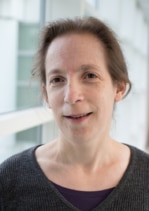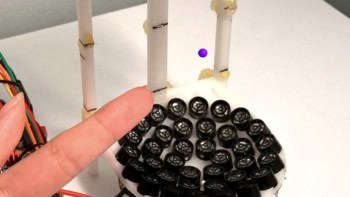Helen Margolis is head of science for the time and frequency department at the UK’s National Physical Laboratory (NPL), and an NPL Fellow in Optical Frequency Standards and Metrology. Margolis is one of 10 physicists profiled in the March issue of Physics World to launch our new Ask Me Anything careers advice column

What skills do you use every day in your job?
As the UK’s national metrology institute, NPL’s mission is to provide the measurement capability that underpins the UK’s prosperity and quality of life. In my department, we operate the national time scale, using it to contribute to global timekeeping and to disseminate accurate time and frequency to users across the UK. This work underpins many technologies that are part of our daily lives, such as mobile phones, the Internet and satellite navigation systems. Of the topics I studied during my undergraduate physics degree, I have probably made most use of the atomic physics, laser physics and optics. The practical and coding skills developed during my doctoral research have also been vital to me during my career at NPL. Equally important is being inquisitive and curious, not being afraid to ask questions, and paying attention to detail. This last point is absolutely critical to succeeding as a metrologist.
As I have progressed into more senior roles, skills such as planning, prioritization, communication and collaboration have become increasingly important. I am currently co-ordinating a three-year European project that involves 15 organizations from eight countries. This is a challenge at times, but one I enjoy. Mentoring is also an important part of my job, and for this effective listening is key.
What do you like best and least about your job?
One of the best things about my job is its variety, which means I am always learning new things, and never get bored. One day I might be deep in detailed discussions about the development of an ultra-stable laser source, or drafting a paper describing the results of an international clock comparison campaign. The next I might find myself discussing the future strategic direction of my department with a member of NPL’s executive team, or giving a lab tour to a government chief scientific adviser. I also work with a diverse and dedicated team of people who are passionate about what they do, and bring a wide range of skills and experience to the team. As head of science my role is to maximize their potential by inspiring them to work effectively together to achieve our goals.
My job does involve quite a bit of international travel, which may not appeal to everyone, but it has taken me to some interesting places that I would probably never have visited otherwise.
What do you know today that you wish you knew when you were starting out in your career?
I wish I’d known that there were places like NPL. I started my research career as a DPhil student at the University of Oxford, working on spectroscopic experiments to test the theory of quantum electrodynamics. This taught me many important things, not least the importance of setting ambitious goals, which increases the likelihood of generating significant results, even if you don’t achieve everything you originally set out to. While I enjoyed my time in Oxford, I always felt challenged when friends asked, “but what is the point of your research?”
Once I moved to NPL, which sits at the intersection between academia, government and industry, this became a much easier question to answer, as the work we do has a direct impact on people’s lives. As in academia, we carry out leading-edge, fundamental research – our work on next-generation optical atomic clocks and related technology fits into this category. However, a key difference is that we always have an end use in mind, even if it is many years away.



